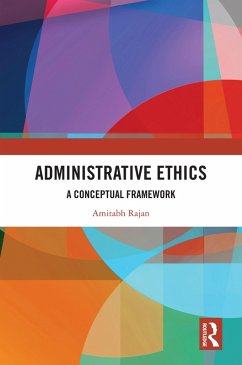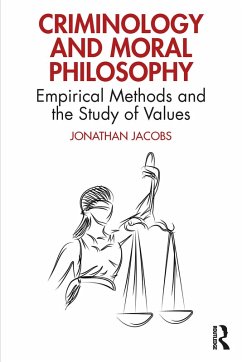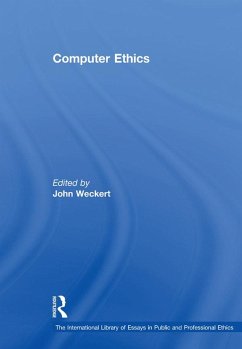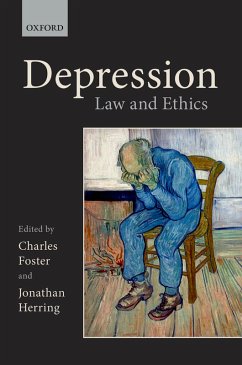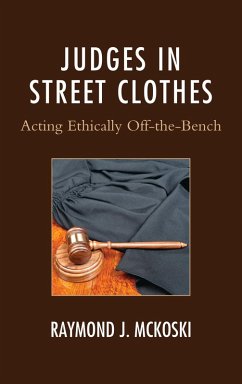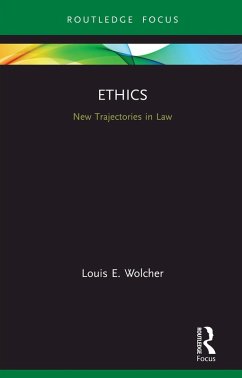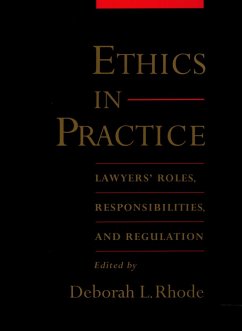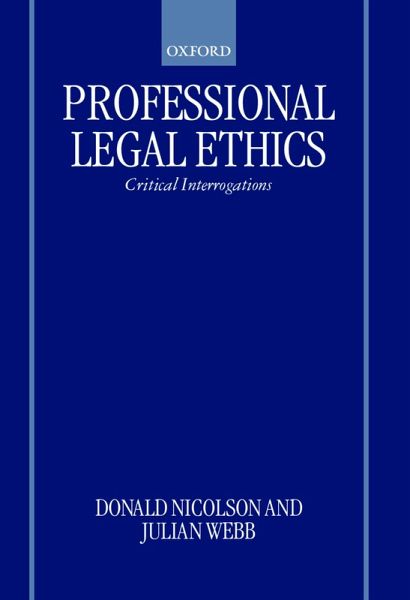
Professional Legal Ethics (eBook, PDF)
Critical Interrogations
Versandkostenfrei!
Sofort per Download lieferbar
102,95 €
inkl. MwSt.
Weitere Ausgaben:

PAYBACK Punkte
51 °P sammeln!
Ethics and regulation have become catchwords of the late 1990s, yet relatively little has been written about the ethical discourse and regulation of the legal professions in England and Wales. This book represents the first attempt to subject the ethical discourse of the English legal professions to in-depth analysis and sustained critique. Drawing on insights from moral philosophy, social theory, the sociology of the legal profession, public law theories of regulation, and the extensive American literature on lawyers' ethics, it argues that, in seeking to provide definitive answers to particu...
Ethics and regulation have become catchwords of the late 1990s, yet relatively little has been written about the ethical discourse and regulation of the legal professions in England and Wales. This book represents the first attempt to subject the ethical discourse of the English legal professions to in-depth analysis and sustained critique. Drawing on insights from moral philosophy, social theory, the sociology of the legal profession, public law theories of regulation, and the extensive American literature on lawyers' ethics, it argues that, in seeking to provide definitive answers to particular problems of professional conduct, professional legal ethics has failed to deliver an approach which requires lawyers actively to engage with the ethical issues raised by legal practice. Through an analysis of the core issues facing lawyers, the authors locate this failure in the profession's reliance on a liberal and adversarial role morality that conceptualises the ethical values of human dignity, autonomy and equality in a formalistic and narrowly legalistic manner. This encourages lawyers to overlook the real invasions of these values so often wrought by upholding clients legal rights, and to ignore the competing claims of affected third parties, the wider community and the environment In seeking to move beyond critique, the authors develop throughout the book a contextual approach to individual ethical decision-making and outline a range of institutional, regulatory and educational reforms which, they suggest, could form the basis for a more ethical brand of professionalism. Professional Legal Ethics: Critical Interrogations is a wide-ranging and thought-provoking analysis written for lawyers, ethicists and policy-makers interested in this neglected area of professional ethics and regulation.
Dieser Download kann aus rechtlichen Gründen nur mit Rechnungsadresse in A, B, BG, CY, CZ, D, DK, EW, E, FIN, F, GR, HR, H, IRL, I, LT, L, LR, M, NL, PL, P, R, S, SLO, SK ausgeliefert werden.




